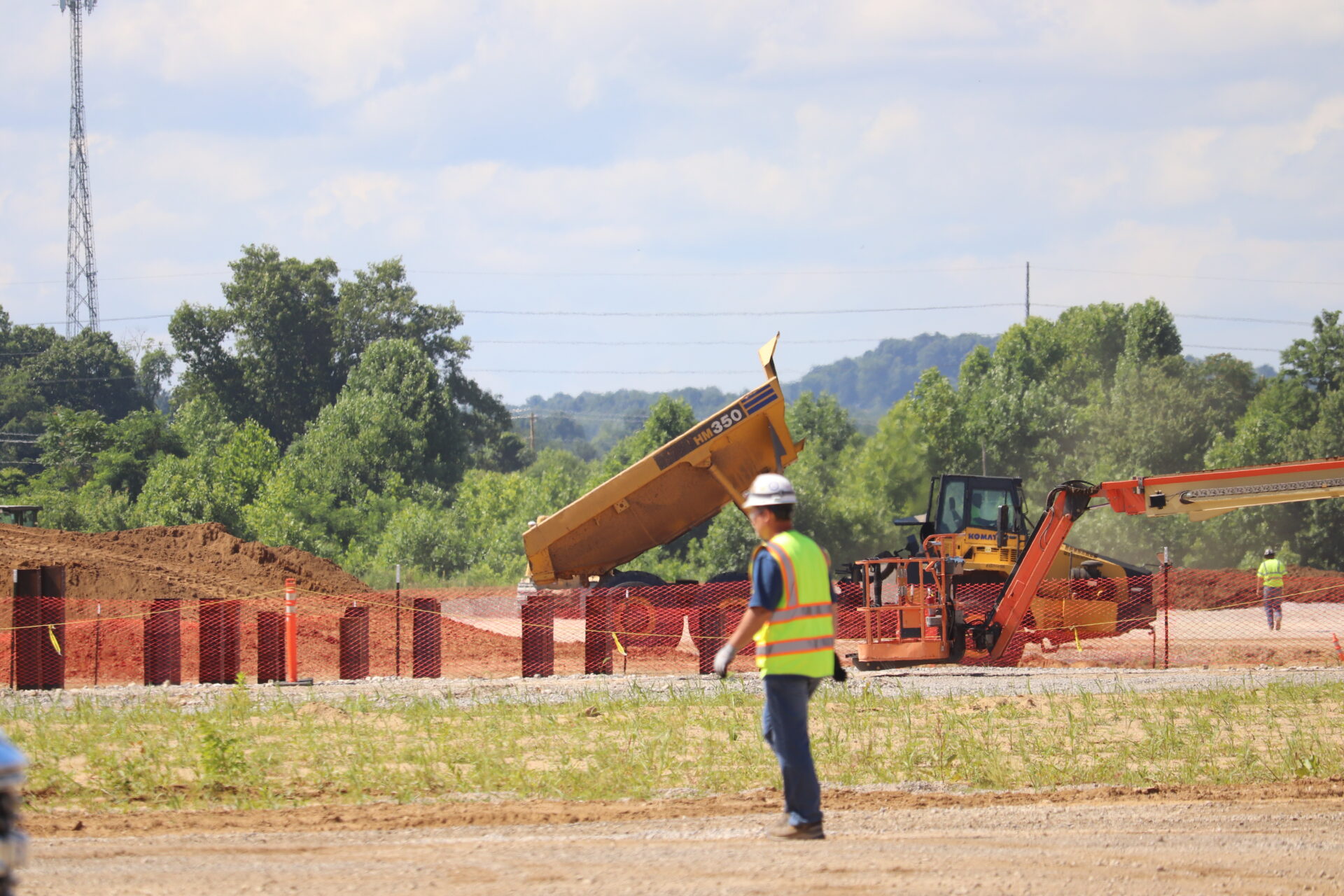The sounds of heavy construction equipment puncture the air on bottomland near the Ohio River in Jackson County. Within the next year or so, a factory will rise from the ground.
A company called Timet will make titanium parts for use in the aerospace industry. And it will be powered by solar panels, across West Virginia Route 2.
Berkshire Hathaway’s BHE Renewables is building the solar facility with battery storage. Here’s the project’s manager, Vic Sprouse.
“So it’s the first solar microgrid in the country,” he said. “We’re going to be right across the street from Timet. And we’re going to start grading that area over there, and eventually you’ll see solar panels go up. You’ll see a battery system in place. And we will be providing a portion of the power towards Timet.”
Aaron Valentine, director of operations for Timet, a subsidiary of Precision Castparts Corporation, says the company intends to source 100 percent of its power from the solar facility.
“The actual amount the site will need depends on how the process evolves and the capacity ends up looking like.” he said. “Roughly about 30 megawatts for Phase I. It could change, obviously. But definitely a lot of energy is required for the site.”
Valentine says the battery system will be key in supplying uninterrupted power to the plant when the sun doesn’t shine. Even then, the plant will be connected to the grid.
“There will be a connection to the utility as a backup,” he said. “As you can imagine with the products we make, you don’t want to have an interruption if there were to be a problem, so we will have a backup supply with the utility.
Depending on when it’s finished and how much power Timet needs, the solar facility could produce as much as 100 megawatts of electricity. Currently, the largest solar plant in the state, in Monongalia County, produces 19 megawatts.
Sprouse says BHE Energy will adjust its output according to Timet’s needs.
“So as Timet ramps up, whatever their needs are is what we will provide them,” he said.
BHE Energy hasn’t settled on what battery storage technology it will use. Form Energy will soon begin building long-duration storage batteries at its West Virginia plant, under construction in Weirton.
“I think it’s definitely something worth looking into,” Valentine said. “That would kind of fit the profile we’re looking for the site. I don’t know if those conversations are being had, but I think it would be a good opportunity to at least evaluate it.”
The area has a rich manufacturing history. Nearby, Constellium makes aluminum parts for the aerospace industry. What was Century Aluminum is also close by.
Sprouse says the microgrid could represent how such manufacturing is powered in the future.
“Being able to provide a facility that’s going to have this significant energy use, that’s producing some of the top-end titanium in the world for highly specialized needs, having some portion of their energy come from renewables, I think is something exciting and probably the future of the way we’re going to do it,” he said.
By late in the year, the solar panels should be visible. And by next year, they should be powering the titanium factory.
Timet is hiring. To find a listing of jobs, go here.
